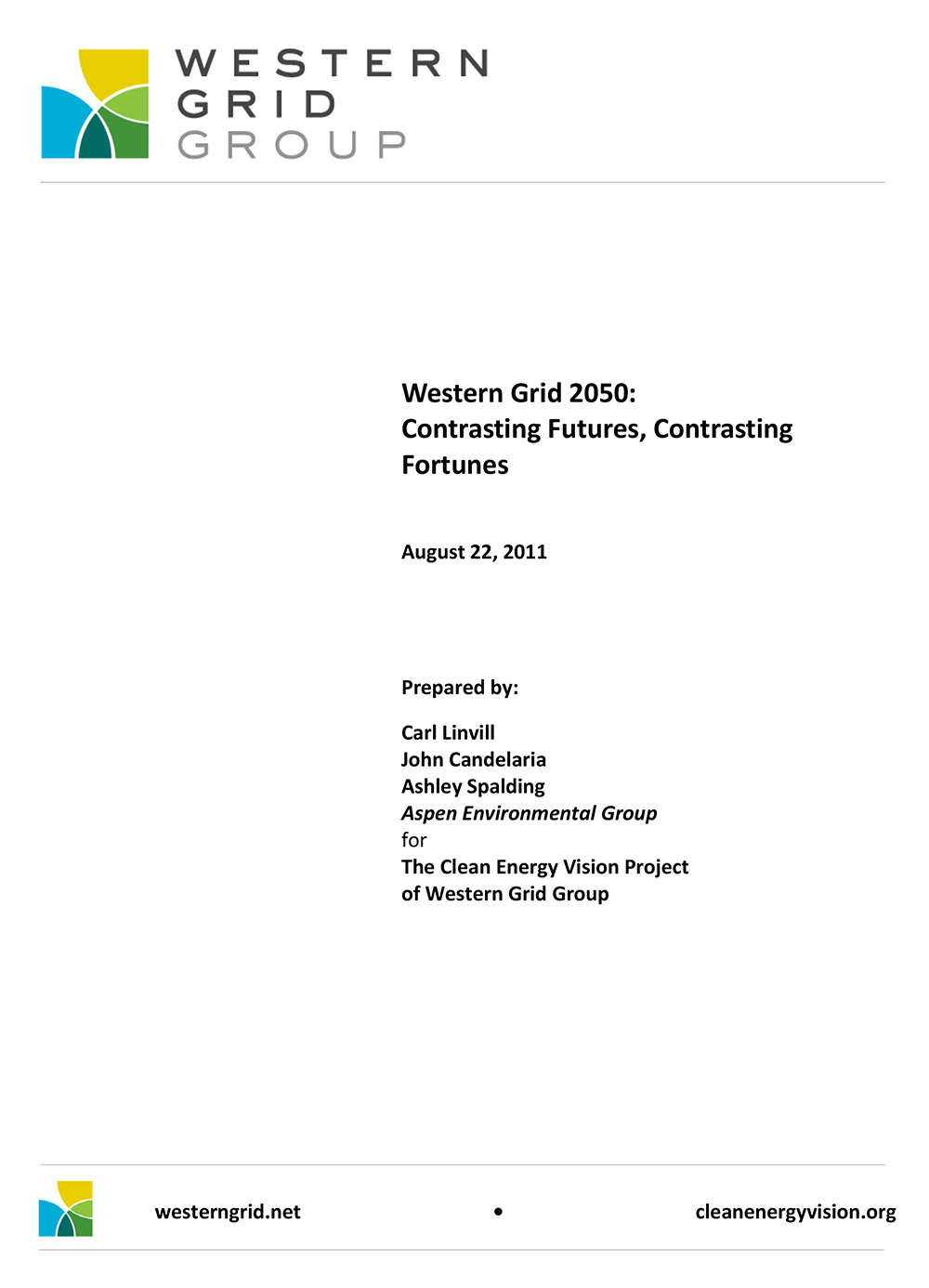
Western Grid 2050: Contrasting Futures, Contrasting Fortunes
The western United States is at a crossroads. Wise electricity sector investment choices will lay the foundation for a robust, competitive and healthy West for generations to come. Unwise choices will leave western businesses at a competitive disadvantage in the global marketplace, western consumers with higher electricity bills and westerners of all walks of life with an unhealthy environment. With the Western electricity sector investing more than $200 billion by 2030 regardless of the development path taken, the choices made will significantly affect quality of life in the West out to 2050 and beyond.
The policy and investment choices made could take the West in two very different directions. Western utilities and electricity providers may choose to operate the grid much as it is today and invest in refurbishing and expanding fossil generation, as well as building additional infrastructure to deliver fossil generated electricity, following a Business as Usual (BAU) trajectory. Alternatively, policy makers and electricity providers may choose a Clean Electricity Vision (CEV) trajectory, modernizing the grid and transmission operations and focusing their discretionary investment on information, communications and system control technologies that enable more energy saving, more low carbon energy production and more sophisticated grid operations.
This report examines how the two options now confronting the West will play-out. If no choice is made, investment will be driven by inertia rather than intention and the grid of 2030 and 2050 will look very much like the grid of 2010. This report asserts that making an intentional choice between the BAU and CEV trajectories now is the responsible course of action. Failure to make a wise, intentional choice now could saddle future electricity consumers with stranded costs, damage the natural environment, deprive job seekers of employment opportunities and leave western businesses with a grid that causes a competitive disadvantage in global markets. The choices made now will also affect the capacity of the West to reduce carbon emissions for decades to come.

